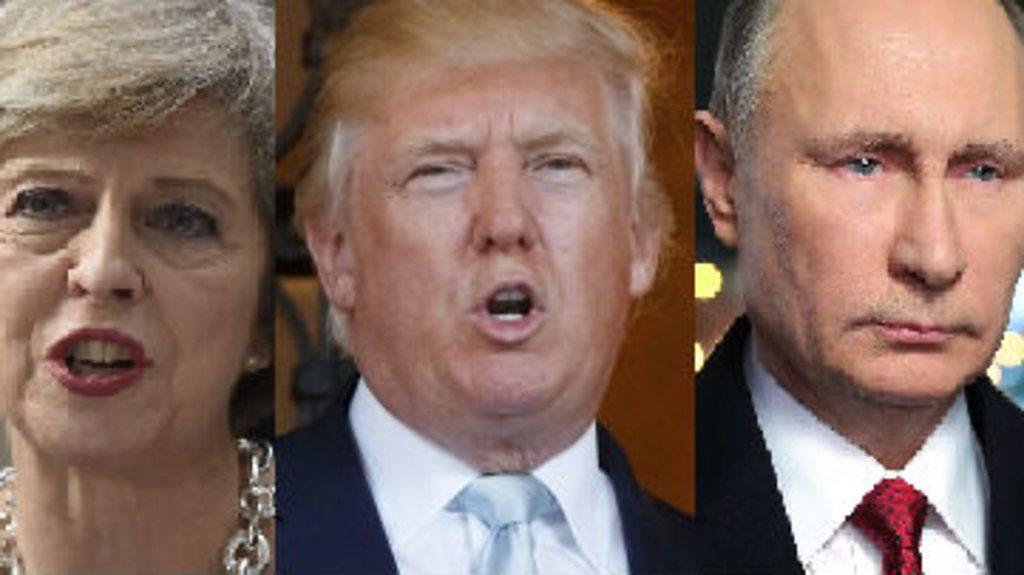Politicians, the public and the media: 30 years of change
- Published
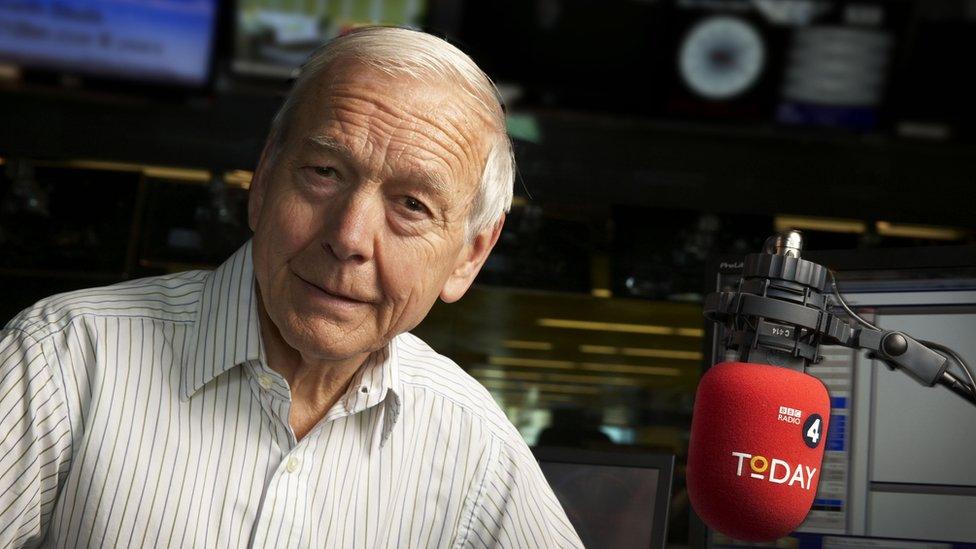
John Humphrys began presenting BBC Radio 4's Today programme in January 1987
As he reaches 30 years of presenting BBC Radio 4's Today programme, John Humphrys examines how the relationship between politicians and voters has changed.
Margaret Thatcher was my first interview with a prime minister on Today: a truly scary prospect for the new boy, if only because you could never be quite sure what she might say.
I wanted to try to get some insight into what informed her politics and asked her about what she, as a practising Christian, saw as the essence of her faith. She surprised me by saying: "Choice."
She added: "How can you express unselfish love if you have no choice? The fundamental choice is the right to choose between good and evil. And the fundamental reason for being on this Earth is so to improve your character that you are fit for the next world."
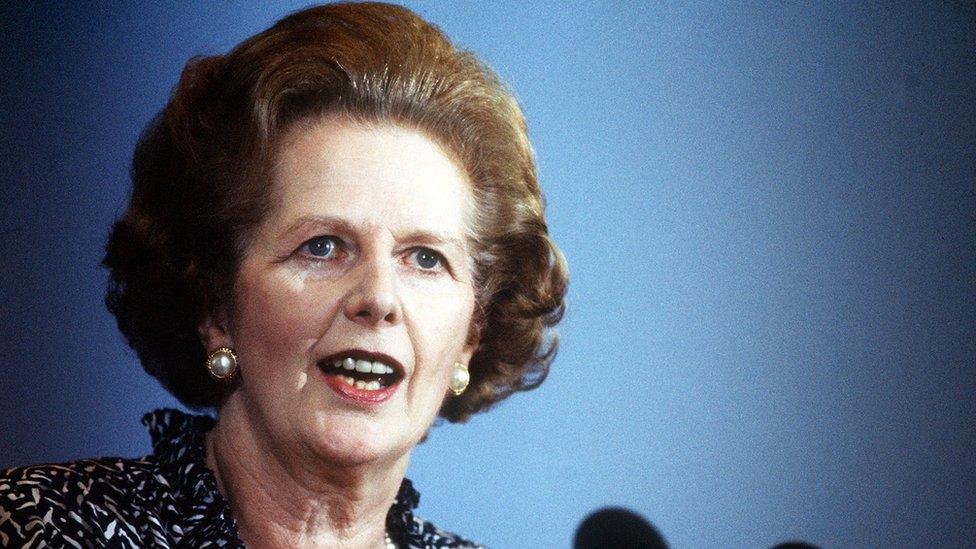
Margaret Thatcher once phoned into the Today programme from the kitchen of No 10 to react to an interview
I try - and fail - to imagine getting into a discussion with a modern party leader a few days before a general election and talking theology.
Mrs Thatcher was - insofar as any politician has ever been - unspun.
Of course she had a press secretary. What she didn't have was a vast team of spin doctors who monitor - even sometimes dictate - ministers' every move and every word.
One morning she actually phoned into the programme from the kitchen at No 10 to react to an interview I had just done. Years later her press secretary, Bernard Ingham, told me the first he knew of his boss being interviewed was when he heard it as he was driving to work.
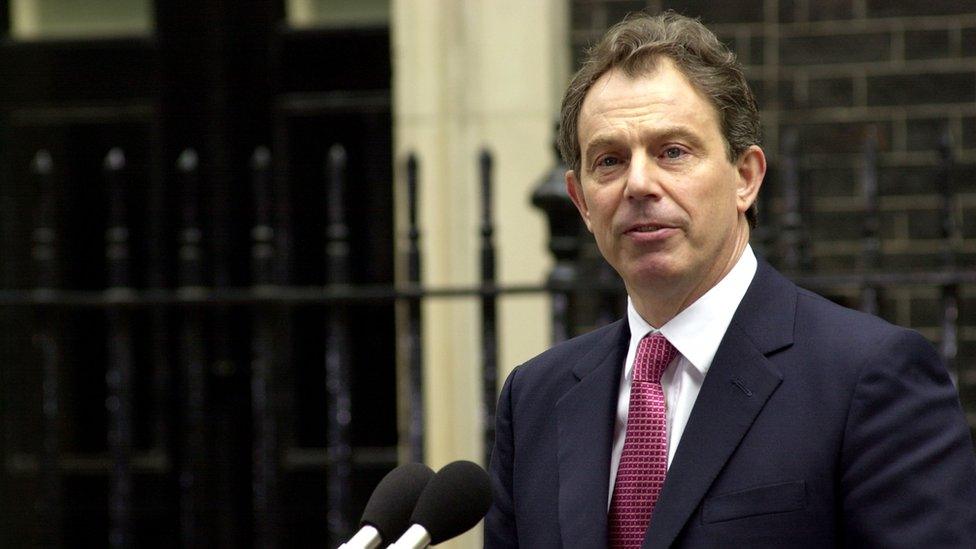
New Labour meant a new approach to the media
"I nearly drove off the bloody road!" he told me. Again, unimaginable today.
Mrs Thatcher never complained about the treatment she got at the hands of us lot.
Things started changing when John Major came to power and I had what I thought was a friendly but combative chat with the then Chancellor, Ken Clarke.
Well maybe not too friendly. A few weeks later, the Cabinet minister Jonathan Aitken made a speech attacking me for having poisoned the well of democratic debate.
He claimed I had interrupted Mr Clarke 32 times in that one interview and ministers should stop exposing themselves to that sort of treatment.
Not that it bothered Mr Clarke. He later said: "My reaction when interrupted by Humphrys was to interrupt his questions if he was going to interrupt my answers."
Everything changed when New Labour arrived on the scene led by a fresh-faced young Tony Blair. New Labour: new approach to the media.
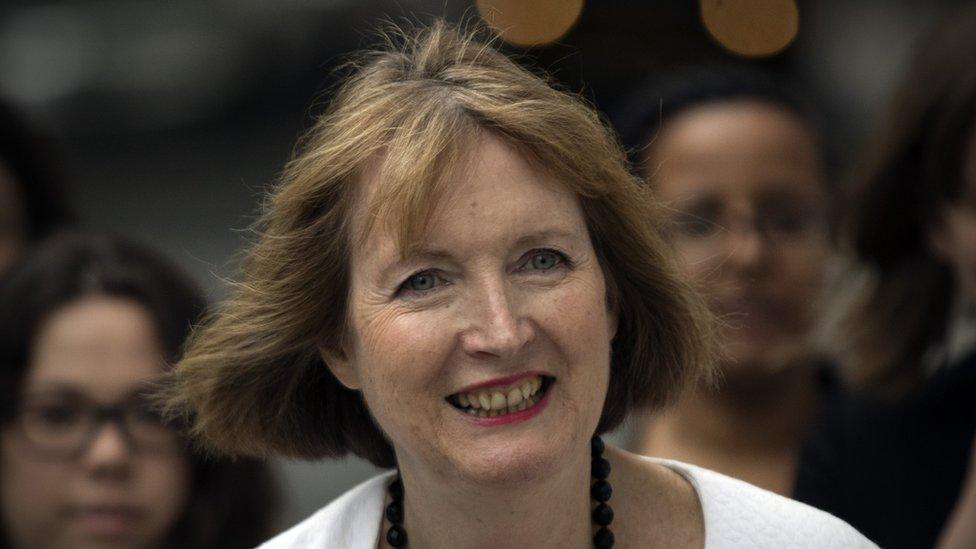
Downing Street threatened to withdraw co-operation from the Today programme after an interview with Harriet Harman
And it worked, at the start. When Mr Blair got into big trouble over sleaze allegations he invited me down to Chequers to talk to him for the On The Record programme.
"I think most people who have dealt with me think I'm a pretty straight sort of guy and I am," he told me.
A month later, there was trouble on a different front. An admittedly lively exchange with Harriet Harman, who was the social security secretary at the time, produced a response from Downing Street the like of which the programme had never generated before.
It was a letter threatening to withdraw co-operation from Today unless something was done about what they called the "John Humphrys problem".
That letter foreshadowed a more confrontational relationship between Downing Street and journalists, especially in the BBC, over the years to come.
In 2003, we invaded Iraq because, we were told by Tony Blair, Saddam Hussein had weapons of mass destruction. He didn't.
Three months later I did a perfectly unremarkable early morning three-minute interview with a correspondent. I've done thousands of them over the last 30 years.
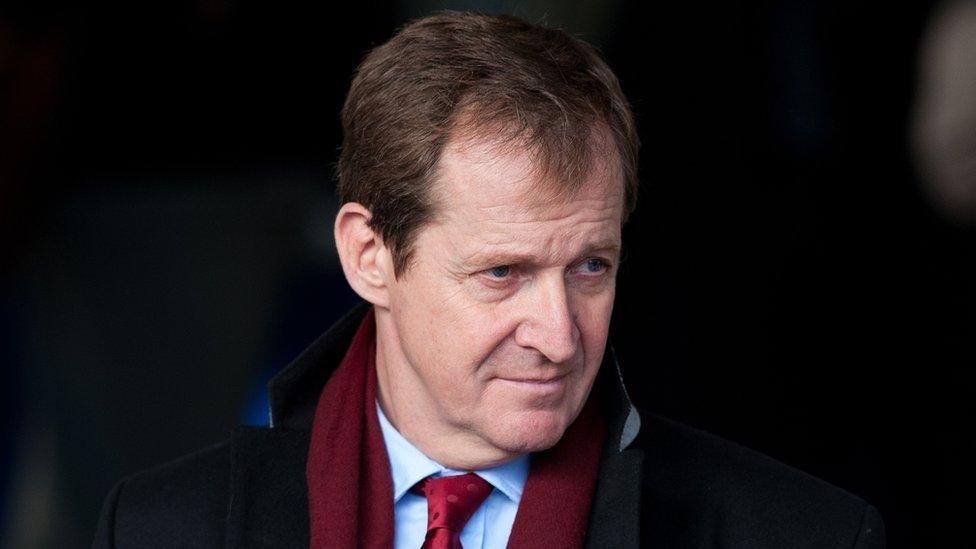
Alastair Campbell changed the relationship between politicians and the media during the early years of Blair's leadership
Did I say unremarkable? It nearly brought down the BBC. Andrew Gilligan had been told by a reliable source that the dossier warning us of the threat from Saddam had been deliberately sexed up.
That claim was ultimately to lead to the suicide of the source, Dr David Kelly, the destruction of Tony Blair's reputation and the resignation of the two most senior men in the BBC: the director general and the chairman.
Orchestrating the government's defence was the No 10 spin doctor, Alastair Campbell, easily the most powerful man ever to hold that role.
Some years later I spoke to Campbell about the effect he'd had on the relationship between politicians and media during the early years of Blair's leadership.
"I was always of the view, when Tony asked me to work for him, that we had to change the terms of the trade, that the press had been frankly setting the political agenda… and in a way which in my mind was detrimental to the interests of the Labour Party," he said.
"So we did make changes and some of those changes were absolutely necessary and I would defend them to the hilt.
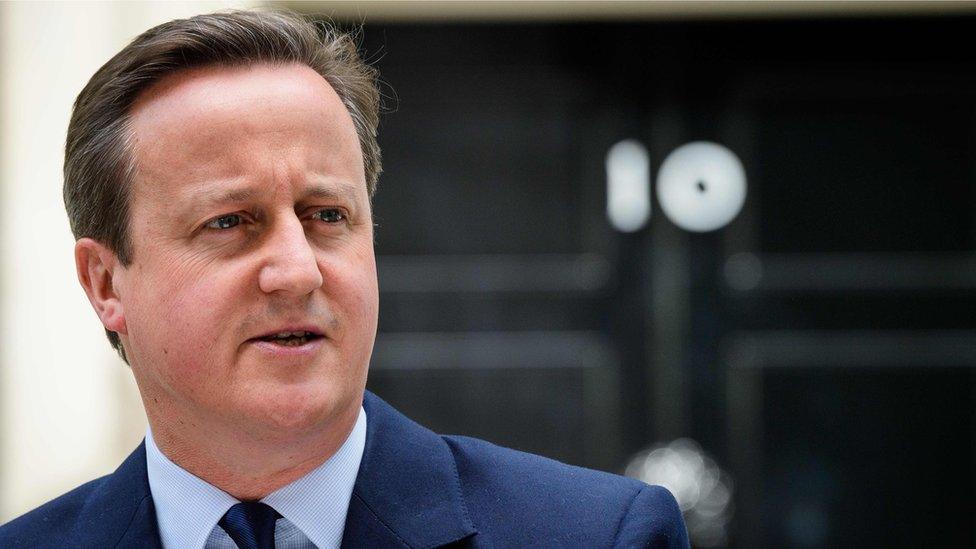
David Cameron appealed directly to the public rather than inheriting the Blair spin machine
"I think at times we probably went over the top. I think sometimes we were too aggressive and sometimes when we got into government for the first couple of years we maybe took some of the techniques of opposition into government."
Then we come to David Cameron.
He may have been the heir to Blair, but he did not inherit the Blair spin machine.
Or rather he believed that if he appealed directly to the people they would listen to what he had to say and respect his wisdom.
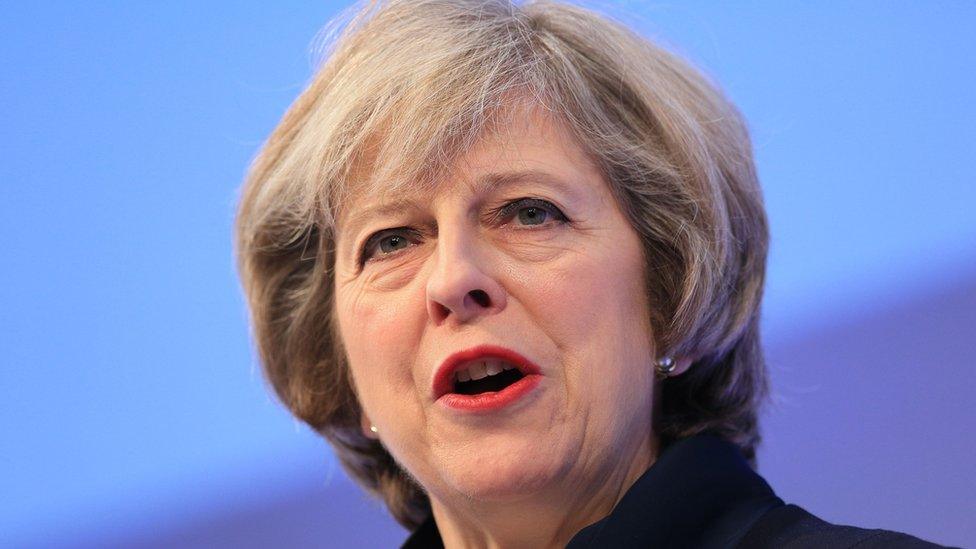
Theresa May has been attacked for keeping her true thoughts to herself
In the end that was to bring him down with the EU referendum result.
So now, another "new dawn", another prime minister, another approach to getting the message across.
Theresa May told us she won't give a running commentary on Brexit. Nor has there been.
On the contrary, this is a prime minister who's been attacked for keeping her true thoughts to herself - so far at least.
That may change in the coming days when we find out what she really means when she tells us Brexit means Brexit. But still, hard to imagine her doing a Thatcher and discussing theology at 08:10 on the Today programme.
- Published21 July 2016
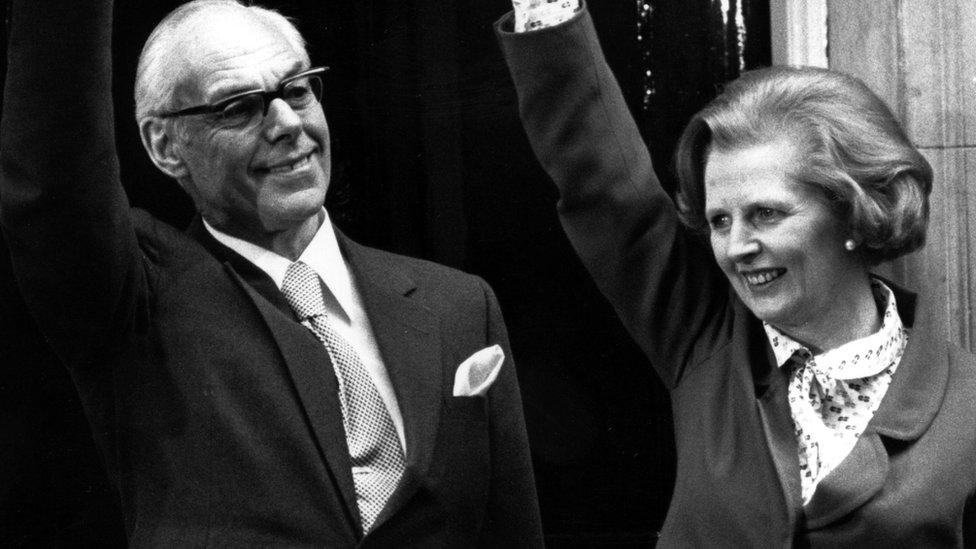
- Published2 January 2017
